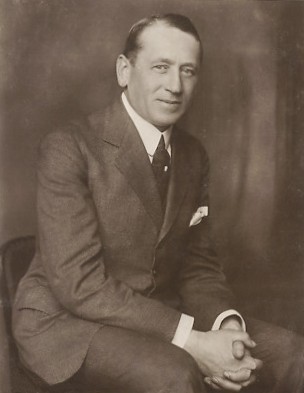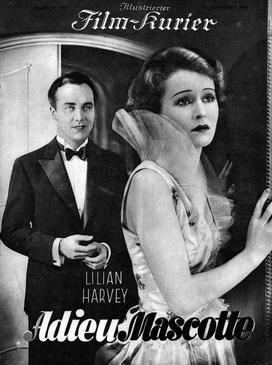Related Research Articles
Hanns Schwarz was an Austrian film director. He was born in Vienna on 11 February 1888.
Leonard Steckel was a German-Jewish actor and director of stage and screen.
Karl Grune was an Austrian film director and writer who made many silent films in the 1920s.
Hans Behrendt was a German-Jewish actor, screenwriter and film director. He was murdered by the Nazis in Auschwitz concentration camp in 1942.
Wilhelm Thiele (1890–1975) was an Austrian screenwriter and film director. He directed over 40 films between 1921 and 1960.

Evelyn Holt was a German actress.

Eugen Burg was a German actor. His daughter was Hansi Burg. Burg was a close friend of the actor Hans Albers.
Eugen Neufeld was an Austrian-Jewish film actor. He was the older brother of actor and director Max Neufeld.
Adolf Lantz was an Austrian screenwriter. Lantz went into exile following the Nazi takeover of power in Germany, and died in London.
Artur Guttmann was an Austrian-Jewish film score composer.
Gregor Rabinovitch was a Ukrainian-born film producer who worked for many years in the German film industry. He emigrated to France from the Soviet Union in the early 1920s. After working for a time in Germany, he left following the Nazi takeover of power in 1933, and spent a number of years in France and the United States. He later returned and died in Munich in 1953.
Léo Lasko (1885–1949) was a German screenwriter and film director of the silent and early sound eras. As Lasko was of Jewish descent he was classified as a "non-Aryan" by the Nazis. Following their 1933 takeover he was banned from film work and eventually emigrated to Britain.
Leo Mittler was an Austrian playwright, screenwriter and film director. Mittler was born in Vienna, then the capital of the Austro-Hungarian Empire, to a Jewish family. He attended the University of Music and Performing Arts and worked as a playwright and director in the German theatre. Mittler then switched to work in the booming German film industry during the silent era.

Without Meyer, No Celebration is Complete is a 1931 German comedy film directed by Carl Boese and starring Sig Arno, Ralph Arthur Roberts and Dina Gralla. Boese made a number of films featuring Jewish comedians during the Weimar Era.
Ekkehard Arendt was an Austrian stage and film actor. Arendt served in the Austrian Army during the First World War, before moving to Germany to work in the theatre and film industry. He played the role of Handel Vane in Alfred Hitchcock's 1931 film Mary and the dishonest bank director in The Virtuous Sinner (1931). Arendt later returned to live in Austria.

The Model from Montparnasse or Adieu Mascotte is a 1929 German comedy film directed by Wilhelm Thiele and starring Lilian Harvey, Igo Sym and Marietta Millner. Originally made as a silent film, it later had synchronized sound added. It is set in the Demimonde of Paris with a heroine working as an artist's model.
Herbert Lippschitz (1904–1972) was a German art director. He rose to prominence during the Weimar Republic in the early sound era. The Jewish Lippschitz was forced to leave Germany following the rise of the Nazi Party to power in 1933. This largely halted his career although he was sporadically involved in films in a variety of different countries. He is sometimes credited as Herbert O. Phillips.
Heinz Goldberg (1891–1969) was a German screenwriter. He also directed two silent films. Following the Nazi Party's rise to power in 1933, the Jewish Goldberg went into exile in several countries including Austria and the Soviet Union before settling in Britain. He returned to Germany in the 1950s.
Hanna Waag (1904–1995) was a German film actress. Amongst her performances were playing Queen Victoria in the 1933 film Waltz War and the title role in Lady Windermere's Fan in 1935. Of Jewish heritage, in 1937 she went into exile from the Nazi regime in Germany. Her husband, the Jewish art director Rudolf Bamberger was killed at Auschwitz.
Gustav Althoff was a German film producer. He was a leading independent producer during the Weimar and Nazi eras, establishing his own Althoff Studios in Berlin in 1939.
References
- ↑ Prawer p.213